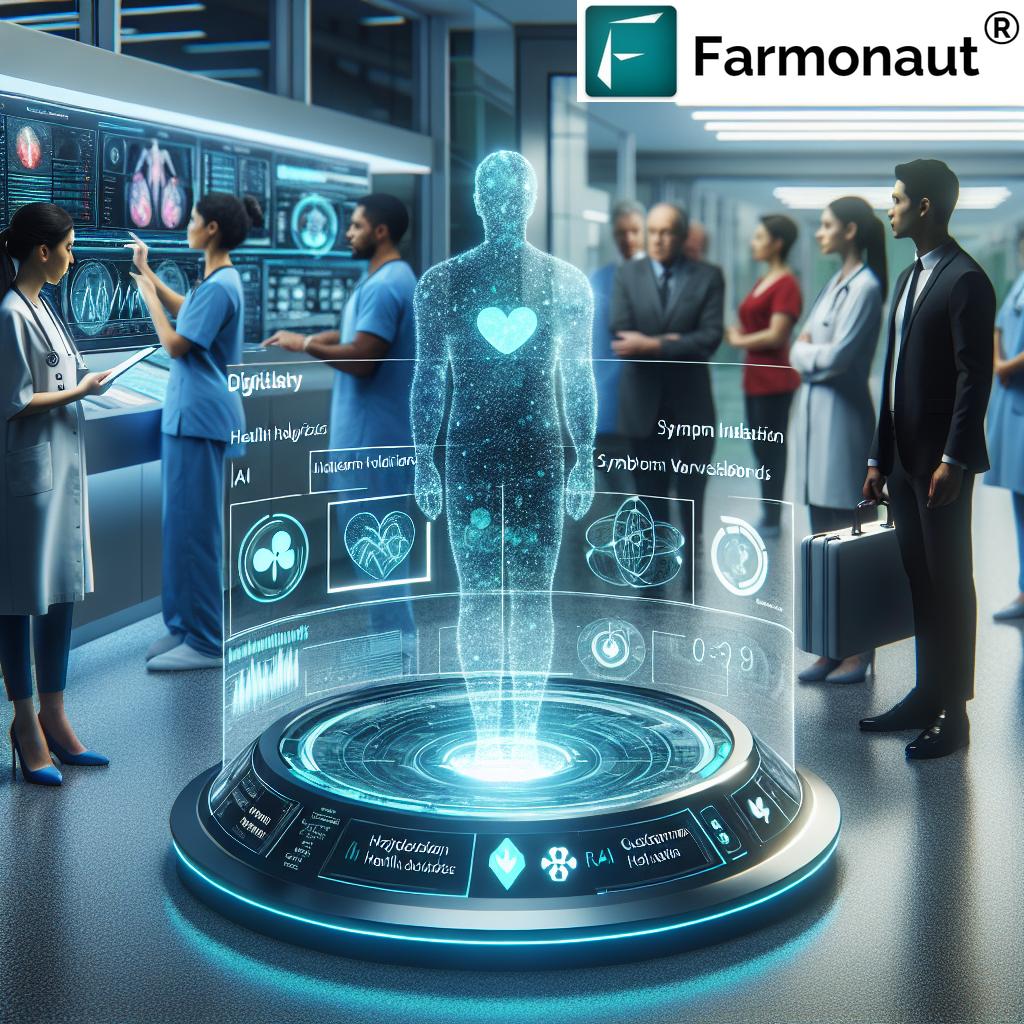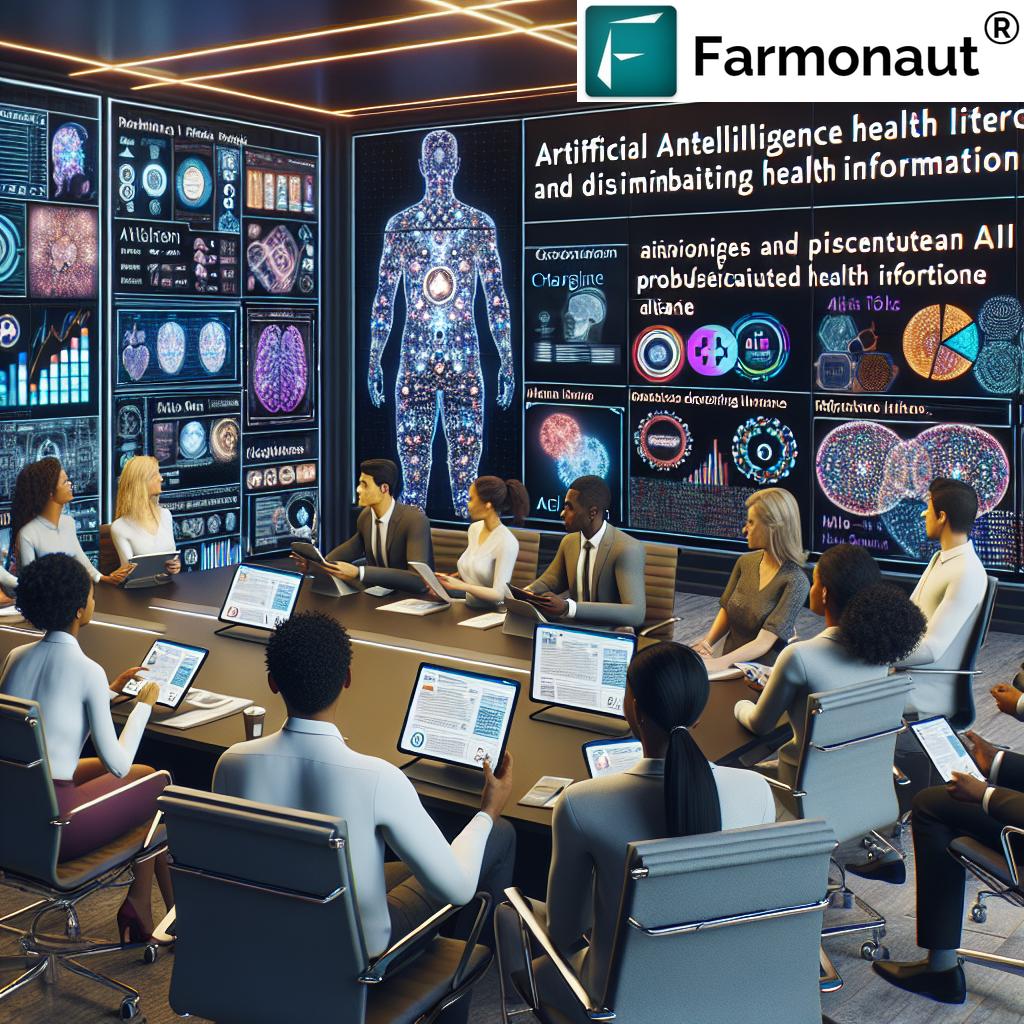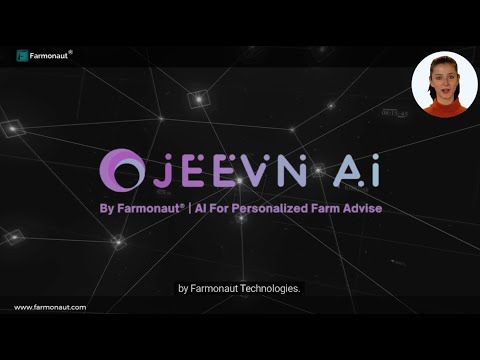Revolutionizing Health Information: How AI is Transforming Digital Health Literacy in Sydney
“9.9% of Australians used ChatGPT for health queries in early 2024, showcasing AI’s growing impact on health information access.”
In the bustling city of Sydney, a quiet revolution is taking place in the realm of health information. As we navigate the complex landscape of digital health literacy, artificial intelligence (AI) is emerging as a powerful force, reshaping how we access, understand, and utilize health-related information. This transformation is not just a technological shift; it’s a fundamental change in how we approach our health and well-being in the digital age.
The Rise of AI in Healthcare: A Sydney Perspective
Sydney, like many global cities, is at the forefront of embracing AI in healthcare. The integration of AI technologies, particularly generative AI, is revolutionizing the way Sydneysiders interact with health information. From chatbots to sophisticated AI-driven health platforms, the options for accessing health data and advice are expanding rapidly.
One of the most significant developments in this space is the growing popularity of ChatGPT for health-related queries. As our recent study reveals, nearly one in ten Australians turned to this AI tool for health information in early 2024. This statistic not only highlights the increasing trust in AI but also signals a shift in how people seek out health information.

Understanding the AI Health Information Landscape
To truly grasp the impact of AI on health literacy, we need to understand the various components of this technological ecosystem:
- Generative AI Tools: Platforms like ChatGPT are at the forefront, offering instant, personalized responses to health queries.
- AI-Powered Health Apps: These applications use machine learning algorithms to provide tailored health advice and monitoring.
- Virtual Health Assistants: AI-driven chatbots and virtual assistants are becoming increasingly sophisticated in handling health-related conversations.
- Data Analytics Platforms: These tools analyze vast amounts of health data to identify trends and provide insights for both individuals and healthcare providers.
The integration of these AI technologies is creating a more accessible and personalized health information environment. However, it’s crucial to approach this new frontier with both enthusiasm and caution.
The Benefits of AI in Health Information
The advantages of using AI for health information are numerous and significant:
- Accessibility: AI tools provide 24/7 access to health information, breaking down barriers of time and location.
- Personalization: AI can tailor information to individual needs, considering personal health history and specific queries.
- Language Support: Many AI tools offer multilingual capabilities, a crucial feature in Sydney’s diverse community.
- Rapid Information Retrieval: AI can process and deliver information much faster than traditional methods.
- Reduced Burden on Healthcare Systems: By providing basic health information, AI can help alleviate pressure on overloaded healthcare services.
These benefits are particularly impactful for individuals with low health literacy or those from non-English speaking backgrounds, as our study indicates a higher likelihood of these groups utilizing AI for health information.
Navigating the Challenges of AI in Health Information
While the potential of AI in health information is immense, it’s not without its challenges:
- Accuracy Concerns: AI-generated health information may not always be accurate, especially for complex clinical questions.
- Privacy and Data Security: The handling of sensitive health data by AI systems raises important privacy concerns.
- Over-reliance on Technology: There’s a risk of people relying too heavily on AI for health advice, potentially delaying necessary in-person medical consultations.
- Lack of Human Touch: AI can’t replace the empathy and nuanced understanding that human healthcare providers offer.
- Regulatory Challenges: The rapid advancement of AI in healthcare is outpacing regulatory frameworks, creating potential risks.
Addressing these challenges is crucial for the responsible integration of AI into health information systems.
Developing AI Health Literacy Skills
As AI becomes more prevalent in health information, developing AI health literacy skills is becoming increasingly important. These skills include:
- Critical Evaluation: Learning to assess the reliability and limitations of AI-generated health information.
- Understanding AI Capabilities: Knowing what AI can and cannot do in terms of health advice.
- Recognizing Red Flags: Identifying when AI-provided information might be inaccurate or inappropriate.
- Complementary Use: Using AI as a supplement to, not a replacement for, professional medical advice.
- Privacy Awareness: Understanding how to protect personal health information when using AI tools.
These skills are essential for navigating the new landscape of AI-driven health information effectively and safely.
The Future of AI in Health Information: Sydney’s Perspective
Looking ahead, we anticipate several trends in the use of AI for health information in Sydney:
- Integration with Telehealth: AI tools are likely to become more integrated with telehealth services, providing a more comprehensive digital health experience.
- Enhanced Personalization: As AI technologies advance, we expect to see even more personalized health information tailored to individual health profiles and genetic data.
- Improved Accuracy: Ongoing research and development will likely lead to more accurate and reliable AI-generated health information.
- Greater Regulatory Oversight: We anticipate the development of more robust regulatory frameworks to govern the use of AI in health information.
- AI-Human Collaboration: The future may see more collaborative models where AI assists healthcare professionals in providing information and care to patients.
“People with low health literacy or non-English speaking backgrounds are more likely to use AI for health information.”

Comparing Health Information Sources
To better understand where AI fits in the broader landscape of health information, let’s compare different sources:
| Information Source | Accessibility (1-5) | Speed of Information Retrieval | Accuracy/Reliability (1-5) | Personalization Capability | Cost | Language Support |
|---|---|---|---|---|---|---|
| Generative AI (e.g., ChatGPT) | 5 | Instant | 3 | High | Free/Low | Multilingual |
| Health Websites | 4 | Fast | 4 | Low | Free | Limited |
| Government Health Resources | 3 | Moderate | 5 | Low | Free | Limited |
| Telehealth Services | 4 | Fast | 5 | High | Moderate | Varied |
| In-person Doctor Consultations | 2 | Slow | 5 | Very High | High | Limited |
This comparison highlights the strengths of AI in accessibility and speed, while also showing areas where traditional sources still hold advantages, particularly in accuracy and reliability.
Responsible Use of AI for Health Information
As we embrace AI in health information, it’s crucial to promote responsible usage. Here are some guidelines:
- Verify Information: Always cross-check AI-generated health information with reputable sources.
- Understand Limitations: Recognize that AI tools are not substitutes for professional medical advice.
- Prioritize Privacy: Be cautious about sharing personal health information with AI platforms.
- Stay Updated: Keep informed about the latest developments and limitations of AI in healthcare.
- Use Multiple Sources: Combine AI tools with other reliable health information sources for a comprehensive understanding.
Alternative Resources for Reliable Health Information
While AI is transforming health information access, it’s important to be aware of other reliable resources:
- HealthDirect: A government-funded service providing free health advice and information.
- NSW Health Website: Offers comprehensive, locally relevant health information.
- MyHealthRecord: A secure online summary of your health information.
- Local Community Health Centers: Provide personalized health information and services.
- University Health Services: Offer health resources and information for students and staff.
These resources complement AI tools and provide a well-rounded approach to health information.
The Role of Healthcare Professionals in the AI Era
As AI reshapes health information access, the role of healthcare professionals is evolving:
- Interpreters of AI-Generated Information: Helping patients understand and contextualize AI-provided health data.
- AI Literacy Educators: Teaching patients how to effectively and safely use AI health tools.
- Human Touch Providers: Offering empathy and personalized care that AI cannot replicate.
- AI Collaborators: Working alongside AI to enhance diagnosis and treatment planning.
- Ethical Guardians: Ensuring the ethical use of AI in healthcare settings.
This evolution underscores the continued importance of human expertise in the healthcare journey.
The Impact of AI on Health Equity in Sydney
AI has the potential to address health equity issues in Sydney:
- Language Barriers: AI can provide multilingual health information, crucial in Sydney’s diverse community.
- Accessibility for Remote Areas: AI tools can bring health information to underserved areas in New South Wales.
- 24/7 Availability: Overcoming time constraints for shift workers and busy individuals.
- Simplified Information: AI can break down complex health concepts, benefiting those with lower health literacy.
- Cost-Effective Information: Providing free or low-cost access to health information.
However, it’s crucial to ensure that AI doesn’t exacerbate existing digital divides in healthcare access.
Preparing for the Future: AI Health Literacy Education
As AI continues to shape health information access, education becomes crucial:
- School Curriculum Integration: Incorporating AI health literacy into school health education programs.
- Community Workshops: Offering AI health literacy workshops in community centers and libraries.
- Healthcare Provider Training: Equipping healthcare professionals with skills to guide patients in using AI health tools.
- Online Courses: Developing free online courses on AI health literacy for the public.
- Media Campaigns: Launching public awareness campaigns about responsible AI use in health.
These educational initiatives are vital for ensuring that Sydneysiders can effectively navigate the AI-driven health information landscape.
Conclusion: Embracing AI for Better Health Literacy in Sydney
As we navigate this new era of health information, it’s clear that AI is not just a passing trend but a fundamental shift in how we approach health literacy. In Sydney, where technology and healthcare innovation thrive, we have a unique opportunity to lead the way in responsibly integrating AI into our health information ecosystem.
The journey towards AI-enhanced health literacy is complex, filled with both promising opportunities and significant challenges. By fostering a balanced approach – one that leverages the strengths of AI while acknowledging its limitations – we can create a more informed, empowered, and health-literate community.
As we move forward, continuous research, ethical considerations, and community engagement will be crucial. The goal is not to replace human expertise with AI but to create a synergy where technology enhances our ability to make informed health decisions.
In this evolving landscape, staying informed, critical, and open-minded will be key. By embracing AI as a tool for enhancing health literacy, while maintaining a strong connection to traditional healthcare wisdom, Sydney can pave the way for a future where health information is more accessible, understandable, and actionable than ever before.
FAQs
- Is AI-generated health information reliable?
AI can provide useful general information, but its reliability varies. It’s best to verify AI-generated health information with reputable sources or healthcare professionals. - Can AI replace doctors in providing health advice?
No, AI is a tool to supplement, not replace, professional medical advice. It cannot account for the full complexity of individual health situations. - How can I ensure my privacy when using AI for health information?
Be cautious about sharing personal health data. Use reputable AI platforms and read their privacy policies carefully. - Are there any risks in relying on AI for health information?
Yes, risks include potential inaccuracies, over-reliance leading to delayed professional care, and privacy concerns. Always use AI health tools responsibly. - How can I develop better AI health literacy skills?
Stay informed about AI capabilities and limitations, practice critical evaluation of information, and combine AI tools with other reliable health resources.



